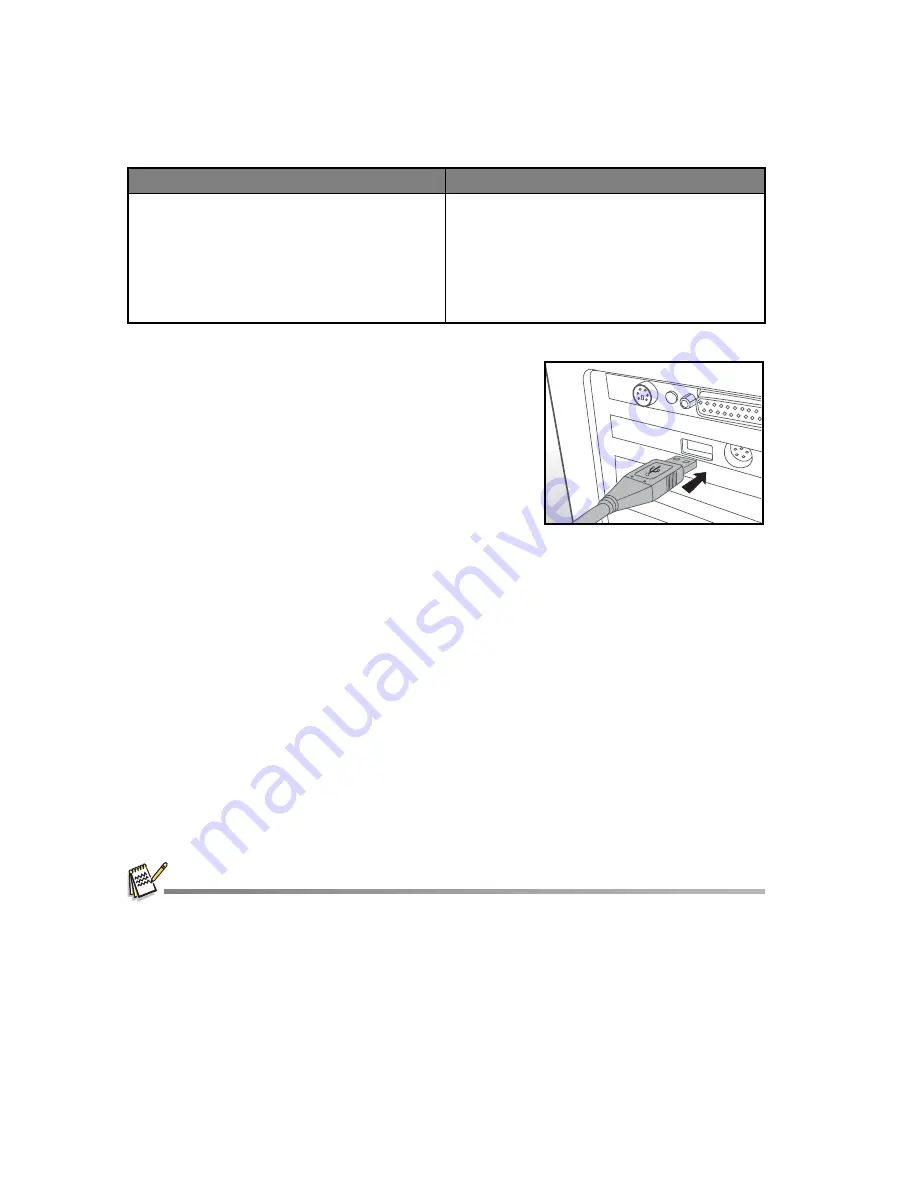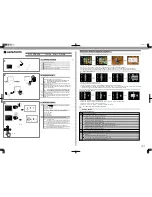
EN-32
TRANSFERRING FILES TO YOUR COMPUTER
System Requirement
Downloading Your Files
1. Connect one end of the USB cable to an available
USB port on your computer.
2. Connect the other end of the USB cable to the USB
terminal on the camera.
3. Turn on your camera.
4. Select [PC] using the
c
/
d
buttons and press the
SET
button.
5. From the Windows desktop, double click on “My Computer”.
6. Look for a new “removable disk” icon.
This “removable disk” is actually the memory (or
memory card) in your camera. Typically, the
camera will be assigned drive letter “e” or higher.
7. Double click on the removable disk and locate the DCIM folder.
8. Double click on the DCIM folder to open it to find more folders.
Your recorded images and video clips will be inside these folders.
9. Copy & Paste or Drag-N-Drop image and video files to a folder on your computer.
Mac users:
Double-click the “untitled” or “unlabeled” disk drive icon on your desktop.
iPhoto may automatically launch.
USING THE CAMERA AS A PC CAMERA
Your camera can act as a PC camera, which allows you to videoconference with business
associates, or have a real-time conversation with friends or family. Your computer system
must include the items, Microphone, Sound card, Speakers or headphones, Network or
Internet connection.
Using the camera as a PC camera, Service Pack 3 is suggested to the users of Windows
XP,Service Pack 3 can be downloaded by visiting http://WWW.microsoft.com/.
Windows
Macintosh
Pentium III 1GHz or equivalent
Windows XP/Vista/7
512MB RAM
150MB available hard disk space
CD-ROM drive
Available USB port
PowerPC G3/G4/G5
OS 10.3.9 or later
256MB RAM (512 MB recommended)
128MB available hard disk space
CD-ROM drive
Available USB port









































